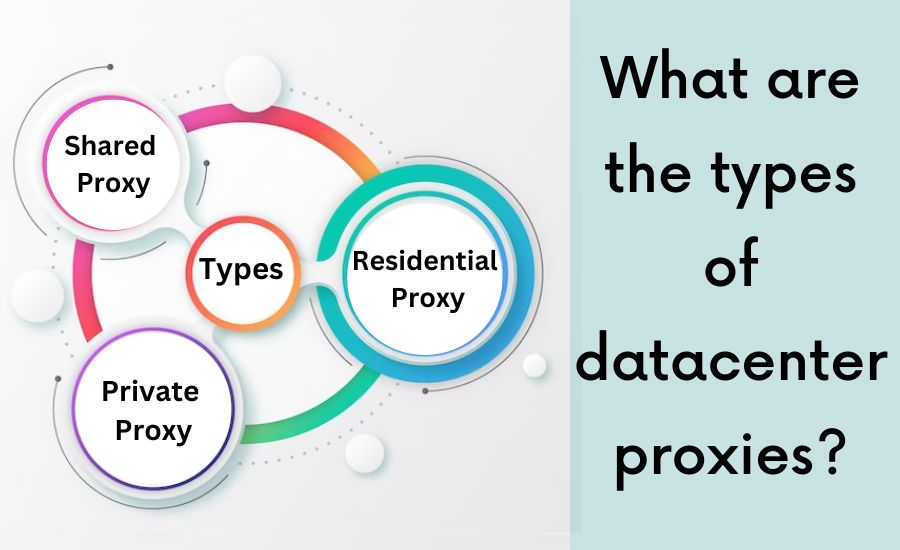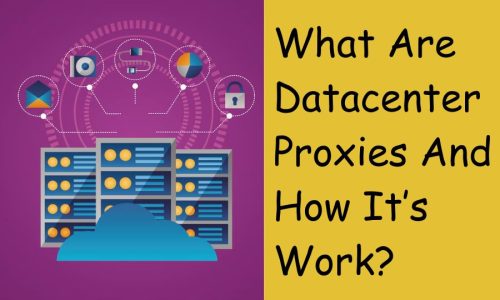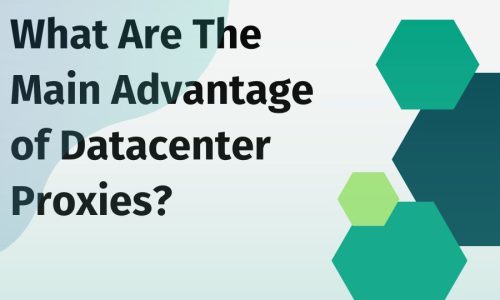Individuals and firms can use a variety of datacenter proxies, including Private Proxies, Residential proxies, Shared proxies, and Dedicated proxies. Each type of proxy has advantages and disadvantages, and it is essential to choose the type, Which is best suited to your needs.
1. Dedicated proxies
Our cheap datacenter proxies that are used by a single user are known as dedicated proxies. These proxies are more expensive than shared proxies, but they provide faster speeds and more consistent performance.
One advantage of dedicated proxies is that they provide faster speeds and more consistent performance because they are only used by one user. This is especially useful for businesses or individuals who require a fast and reliable connection for tasks like web scraping or online gaming.
Dedicated proxies, On the other hand, are generally more expensive than other options and may not be practical for all businesses or individuals.
2. Shared proxies
Cheap shared proxies are datacenter proxies that are used simultaneously by multiple users. These proxies are typically less expensive than dedicated proxies, but due to the higher number of users, they may be slower and less reliable.
Shared proxies are less expensive than other options, making them an appealing choice for businesses or individuals on a budget. However, due to the higher number of users, shared proxies may not be as fast or reliable as other options.

3. Residential proxies
Residential proxies are datacenter proxies that use authentic IP addresses, such as home routers or smartphones. As a result, they are more difficult to detect and block than other types of datacenter proxies because they appear to be coming from a real device rather than a server.
Cheap residential proxies have the advantage of being more difficult for websites to detect and block. This is especially useful for businesses and individuals who engage in web scraping or other activities that websites may detect.
Residential proxies, on the other hand, can be more expensive than other types of datacenter proxies, and they are not always as reliable or fast as other options.
Which type of datacenter proxy is right for you?
The answer depends on your specific requirements and budget. Because of its ability to avoid detection, a residential proxy may be the best choice if you are engaged in web scraping or other activities that may be detected by websites.
A dedicated proxy may be the best option if you require a fast and reliable connection for tasks such as online gaming.
A shared proxy may be the most practical option for small businesses or individuals on a tight budget. However, keep in mind that shared proxies may not be as fast or as dependable as other options.
Finally, the best type of datacentre proxy for you will be determined by your specific requirements and budget. To know more about datcenter proxies read our blog Datacenter Proxies – A Complete Guide
How to choose reliable datacenter proxies?
There are several important factors to consider when selecting a reliable datacenter proxy provider. Here are some pointers to help you make an informed choice:
1. Reputation
Look for a company that has a good reputation in the industry. You can do this by reading reviews and asking other businesses or professionals for recommendations.
2. Location
It is critical to select a datacenter proxy provider with servers in the regions you require. This ensures that you have the fastest connection speeds and performance possible.
3. Speed and bandwidth
Igniteproxy provides high bandwidth and fast connection speeds. This is especially important if you use the datacenter proxies for high-bandwidth tasks like streaming video or downloading large files.
4. Safety & Security
Select a provider that encourages security and provides features such as encrypted connections and secure proxy servers.

5. Customer support
It’s critical to have a provider that provides excellent customer service, as you may run into problems or have questions at some point. Look for a service provider with an attentive and helpful support team.
6. Pricing
When selecting a low-cost datacenter proxy provider, keep your budget in mind. Look for a provider with competitive pricing and a variety of pricing plans that meet your requirements.
7. Compatibility
Check that the proxies provided by the provider are compatible with the applications and systems you intend to use them with.
FAQ
1. What are the proxy server and their types?
Some proxy providers provide a SOCKS proxy, which allows users to disguise their virtual location (also known as location spoofing). A SOCKS5 proxy hides your IP address from online services.
2. Which proxy is better, SOCKS4 or SOCKS5?
SOCKS5 proxies are generally considered more flexible and secure than SOCKS4 proxies. A SOCKs5 proxy is more secure than a SOCKs4 proxy because it uses Secure Shell (SSH) encrypted tunneling technology and a full TCP connection with authentication.
3. Is it Possible to Use Free Datacenter Proxies?
You can, but you probably shouldn’t. They’ll be inefficient and won’t work on many websites. Furthermore, using free HTTP proxies with your personal information is dangerous.
4. What is the best proxy type?
Residential proxies are by far the most effective proxies for the vast majority of applications because they are IP addresses of actual, physical devices. They are nearly impossible to identify because they appear as regular users on all servers. With the assistance of a residential proxy, data access is simple.



